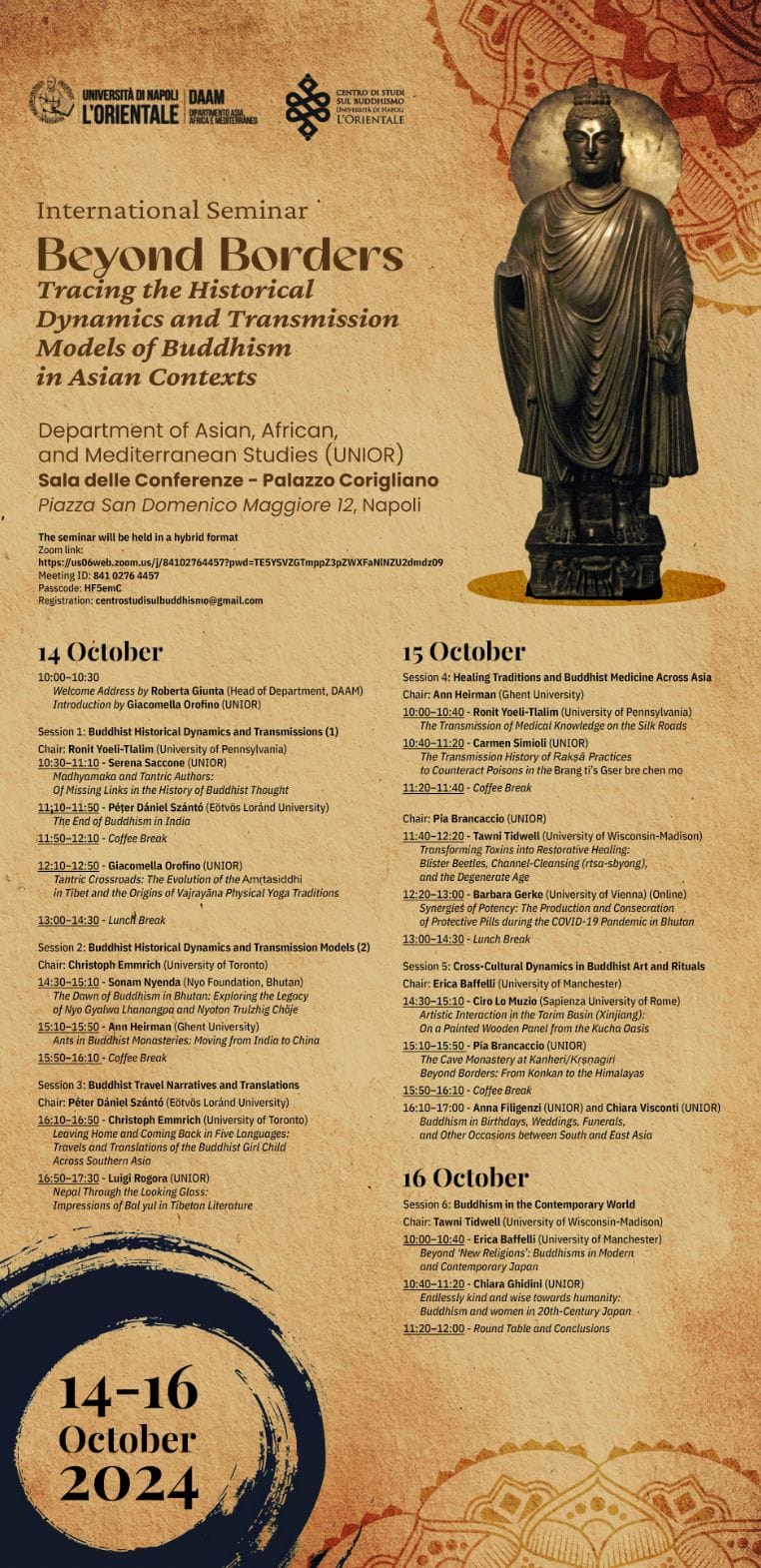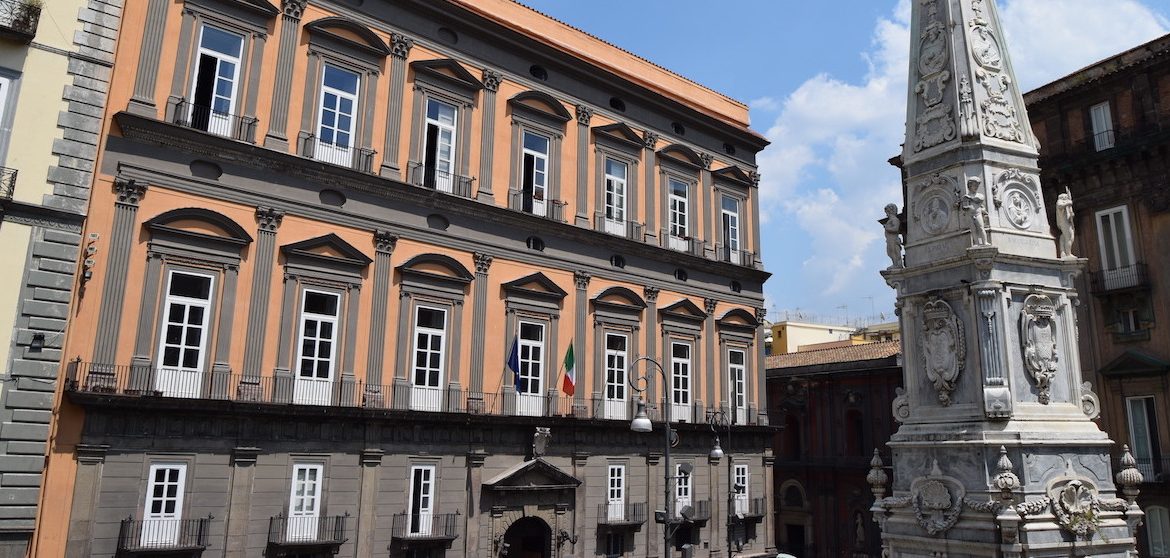From 14 to 26 October, the Department of Asian, African, and Mediterranean Studies (UNIOR) at the University of Naples “L’Orientale” is hosting a hybrid conference called, “Beyond Borders: Tracing the Historical Dynamics and Transmission Models of Buddhism in Asian Contexts.” Overseas attendees can join in the conference over Zoom, while in-person speakers and attendees will convene at the Piazza San Domenico Maggiore 12, Naples.
Over the two days, there will be a series of sessions, with 3 sessions, 2 sessions, and 1 session on the 14th, 15th, and 16th respectively. The successive sessions are as follows: Buddhist Historical Dynamics and Transmissions 1 and 2, Buddhist Travel Narratives and Translations, Healing Traditions and Buddhist Medicine Across Asia, Cross-Cultural Dynamics in Buddhist Art and Rituals, and Buddhism in the Contemporary World.
I find of particular interest the laser-focused lectures by Sonam Nyenda of Nyo Foundation, Bhutan (“The Dawn of Buddhism in Bhutan: Exploring the Legacy of Nyo Gyalwa Lhanangpa and Nyoton Trulzhig Chöje”) and Carmen Simoli of UNIOR (“The Transmission History of Raksha Practices to Counteract Poisons in the Brang ti’s Gser bre chen mo”). The conference’s theme of “beyond borders” and “transmission and communication” hearkens back to the mission of the University of Naples “L’Orientale” from its inception in 1732, 292 years ago.
The University of Naples “L’Orientale” has a unique history with Asian studies, in particular Sinology and Chinese studies. In 1644, the Manchus conquered China and ushered in the Qing dynasty (1644–1711), and opened the new imperium to foreign specialists. In the court of the Kangxi Emperor (1654–1722) worked a missionary called Matteo Ripa from the then-Kingdom of Naples from 1711 to 1723. A trusted lieutenant of the Chinese court, Matteo Ripa was permitted to return to Naples with four Chinese Christians who taught the Chinese language. Matteo’s circle formed the “Chinese College” (Collegio de’ Cinesi) of Naples, and the institution was sanctioned in 1732 by Pope Clement XII to teach Chinese for missionaries and Christianize the Qing Empire through Chinese-speaking priests.
Having played an important role in disseminating knowledge of China in the West, the Chinese College took on a more secular character after the Italian unification in 1861, and has since become a specialist institution for global and Asian studies.
Explore more about the conference in UNIOR’s schedule below. The conference promises to be a riveting one.



